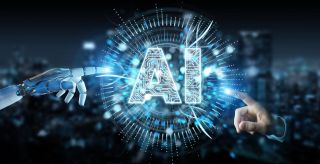Artificial Intelligence
Artificial Intelligence: Existential Threat and Litmus Test
A.I. will either haunt or liberate us.
Posted May 16, 2023 Reviewed by Ekua Hagan
Key points
- An insider known as the "godfather of A.I." has left his job to speak more freely about A.I.'s dangers.
- A.I. raises many existential questions, such as the meaning of human life and freedom.
- Developing A.I. safely may come down to the ability of humans to effectively collaborate.

“It’s as if aliens had landed, but we didn’t really take it in because they speak good English.” —Geoffrey Hinton, the “godfather of A.I.” on PBS NewsHour
Concern about artificial intelligence is booming. Congress is holding hearings. OpenAI’s CEO has welcomed governmental regulations. Undoubtedly, nefarious and irresponsible actors are sharpening their knives. Meanwhile, people are rapidly adopting the available technology, using ChatGPT, Bing, and other “large language models” as advanced assistants for any number of tasks, from planning travel to generating script ideas to writing college essays to detecting A.I.-generated college essays, not to mention up-and-coming uses in mental health care. Looming above the advance in technology are decades-old dystopic visions, most prominently the Terminator and Matrix franchises, as well as films such as Spike Jonze’s Her, which I wrote about a few years ago.
The dangers of A.I. raise existential questions
What is this powerful technology capable of? What will it do? What will it “want?”
Hinton, who recently left his job at Google to be able to speak more freely, points to these five dangers of super-intelligent A.I.:
- Producing fake news that would manipulate humans.
- Encouraging polarization by manipulating us to click on items that will make us outraged.
- Putting people out of work.
- Magnifying and introducing bias and discrimination (both in the A.I. system and in terms of who has access to the technology, I would suggest).
- Taking control away from people.
These raise existential questions and threats:
- What is the impact of A.I. on the meaning of human life?
- What is the impact of A.I. on human freedom?
- What is the impact of A.I. on survival of individuals and the human species?
- What is the impact of A.I. on isolation and belonging?
- How will the existence of A.I. impact identity, sense of self, and society writ large?
Hinton likens the threat of A.I. to the possibility of global nuclear war:
“Machines taking over is a threat to everyone. Just like global nuclear war is. And in the case of nuclear war, people did collaborate to reduce risks…There’s huge positive potential in these things. But of course, there’s huge negative possibilities. I think we should put more or less equal resources into developing A.I. to make it more powerful and into figuring out how to keep it under control and how to minimize bad side effects of it.”
How will we care for A.I. as it develops?
I hope that “aliens” (A.I.) landing might produce the kind of unifying force around the world to deepen our ties and care for and protect each other. A.I. might also be considered an “offspring” of humanity as well—how will we care for it as it develops?
Can we successfully navigate coexistence and interdependence?
Competing with benevolence are other qualities of our human society and psyche, such as greed, thirst for power, hatred, bias, and antagonism. We are assuming that the developing A.I. might have these qualities as well, either imported from our own inclinations or generated de novo.
What will we choose? What will it “choose?” I’m heartened by the fact that collaborative systems have proved stable and enduring, both in our evolution and in code, as described by Robert Axelrod in his book, The Evolution of Collaboration.
A.I. is a profound communal moral litmus test perhaps greater than military aggression and autocracy. Our answers will impact our psychology, and either haunt or liberate us. Our history is decidedly mixed.
Will selfishness, ignorance, and arrogance be our hallmark and epitaph? Or will we do better?
Stay tuned.
(c) 2023 Ravi Chandra, M.D., D.F.A.P.A.
References
Geoffrey Hinton on the PBS NewsHour, May 5, 2023
Metz C. ‘The Godfather of A.I.’ Leaves Google and Warns of Danger Ahead. The New York Times, May 1, 2023
Chandra R. Spike Jonze’s Her: Existential and Emotional Questions. Psychology Today, January 3, 2014
Chandra R. Ex Machina: Oedipus Ex? Psychology Today, April 23, 2015


